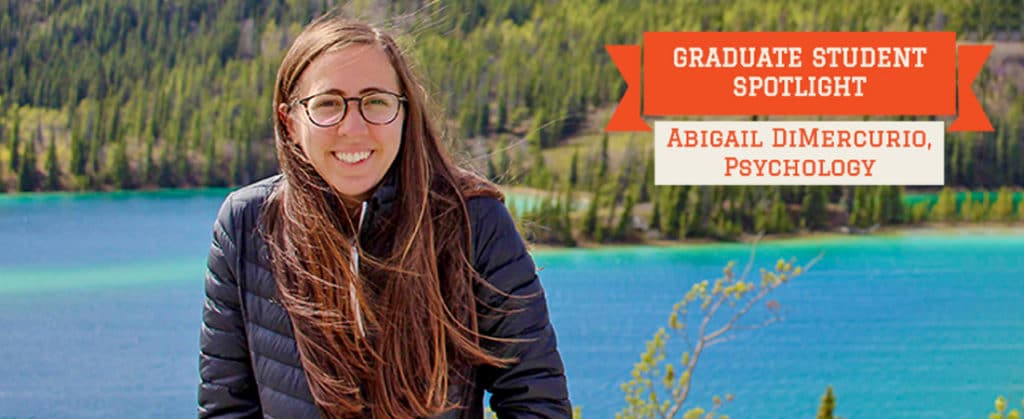For thousands of years, philosophers and researchers have been asking the same question: How does a powerful and complex human mind emerge from the brain of a helpless and undeveloped infant? Scientists originally believed that the brain was genetically programmed with latent skills that would be revealed as infants mature. However, neurologists and psychologists now theorize that these abilities are the direct result of interactions within a complex, dynamic system.
Abigail DiMercurio, a doctoral student in the Department of Psychology and developmental psychologist, has based her research on the dynamic systems theory, which explains that skills such as walking and talking are a result of connections formed at many stages of development and involve multiple systems. Although different areas of the brain are responsible for movement, language and emotion, brain development builds on itself as connections eventually link with each other in more complex ways.
DiMercurio’s work looks at the relationship between motor and language development to discover how exploring the physical environment relates to word learning.
“Typically, people might view infant development as fairly linear—infants crawl, walk, and then talk,” DiMercurio explained. “However, early childhood development is much more complicated and dynamic. Development in one area, such as physical and motor skills can have a direct impact on a seemingly unrelated area of development, such as language skills.”
Starting from birth, children develop brain connections through their everyday activities. They’re built through sensory experiences that occur as infants interact with the world. DiMercurio builds on this premise when designing experimental protocols.
“Designing testing procedures is an important part of the scientific process. Designing those procedures for infants, however, is also a study in creativity and problem solving,” she noted. “Because of children’s’ limited communication skills, it is important to frame everything as a game in order to keep them engaged and happy.”
DiMercurio has always had an interest in working with children, and even wanted to be a teacher as a child. Her excitement about psychology, however, developed over time, sparked by an experience in high school.
“When I was a freshman in high school, my sister was a senior and took an AP psychology class,” DiMercurio revealed. “I picked up her psychology textbook and I read it. I was so fascinated by it that I decided then that this is what I wanted to do.”
As an undergraduate psychology student at the University of Georgia, she assumed that she would graduate and begin practice in providing therapy. Diverse class offerings, however, soon illustrated the breadth of the psychological field and a developmental psychology class brought her research interests into focus.
“That was where it clicked for me,” she said. “In other psychology classes, the focus was mostly on what is known about how adults think and process information. Developmental psychology, however, looks more closely at how we get there and the pathways that are formed.”
DiMercurio is excited about the impact her research could potentially have on other fields.
“On one level, it may look like we’re just handing kids a ball and seeing if they learn the word ‘ball’,” DiMercurio noted. “But on the other hand, we get to answer the questions that no one else has about something incredibly impactful like brain development. Not only do these seemingly small, everyday interactions play a role in developing language skills, but they could have other implications as well.”
For example, scientists working on artificial intelligence (AI) robots have shown interest in research on how infants become aware of the position and movement of their bodies. Understanding the process of how humans use sensory experiences to form body maps might inform how robots are programmed to control their own movement and function.
“As we began presenting the results of this work, scientists in the field of robotics became extremely interested in the process,” DiMercurio noted. “They want to know how humans learn, and whether this can be applied to their work.”
For now, though, DiMercurio plans to stick to her research on early language development in children. By better characterizing the neural connections formed during early childhood she hopes to contribute to the body of knowledge about human brain development.
